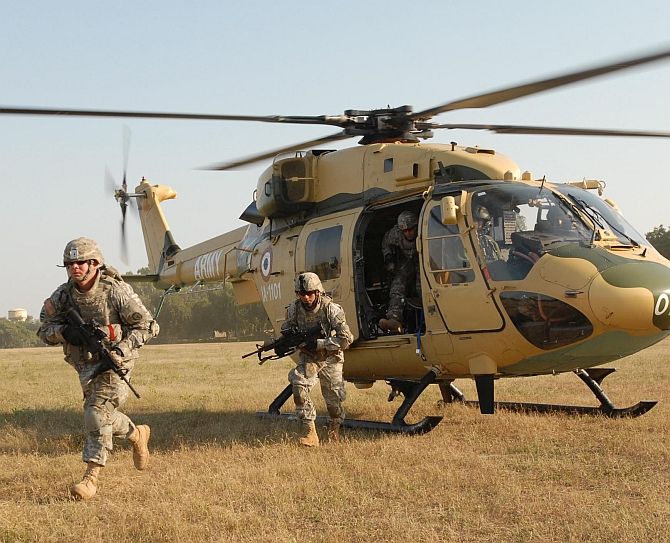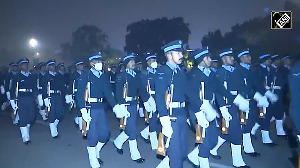The text of the logistics defence agreement has not been made public at this point of time. But Pentagon Press Secretary Peter Cook and US Department of Defence spokesperson, Commander Gary Ross give a gist of what it's all about.

The key logistics defence pact signed between India and the United States earlier this week, will make joint military operations between the two countries more efficient, the Pentagon has said.
Pentagon Press Secretary Peter Cook also asserted that strong defence ties between the two countries would help enhance regional security.
"We think it will make the conduct of our operations with the Indian military that much more efficient and effective. And again, it's very consistent with agreements we have with other countries," Cook told media persons at a news conference.
Defence Minister Manohar Parrikar and US Defence Secretary Ashton Carter had signed the 'Logistics Exchange Memorandum of Agreement' and said it will facilitate opportunities for "practical engagement and exchange".
Asked about the adverse reaction to the agreement from India's neighbourhood, Cook said no country needs to worry about the pact.
"I would speak to the positive nature about this agreement, which is to enhance the security relationship between our two countries, and security in the region. This agreement and our relationship with India should not be cause for concern for others," he said.
"We see this as an opportunity to strengthen out ties with India, our defence ties. And that those enhanced relations represent a security enhancement for the region as a whole," he asserted.

Department of Defence spokesperson, Commander (US Navy) Gary Ross said that the LEMOA agreement facilitates mutual logistical support between the US and Indian Armed Forces by permitting the exchange of authorised supplies and services on short notice without requiring advance payment.
The agreement becomes especially important given the increasing number of military-to-military exercises that the countries two countries conduct, he said.
"For example, during a bilateral exercise with the US, the participant country's unit may require fuel for its equipment. The unit cannot make the purchase unless it can pay directly and immediately. A LEMOA agreement would allow for the purchase of fuel by establishing a price for the purchase and the terms for reimbursement, which could be by cash, replacement-in-kind, or an equal-value exchange," Ross said.
"Supplies and services that may be exchanged under the LEMOA include food, water, billeting, transportation, petroleum, oils, lubricants, clothing, medical services, spare parts and components, repair and maintenance services, training services, and other logistical supplies and services," he said.
The text of the agreement has not been made public at this point of time.
"These are standard agreements that we use for other partner nations. India's was based on the standard agreement. We have approximately 100 such agreements with other countries and a few with international organisations," Ross said.
Asked if this was an India-specific agreement or whether a standard template had been signed by the two countries, Ross said, "There were some slight changes that we agreed to with India to take its unique position and interests into account."
The agreement, he said, applies to all global US bases on land, sea and air.
Photograph: US Department of Defense






 © 2025 Rediff.com -
© 2025 Rediff.com -